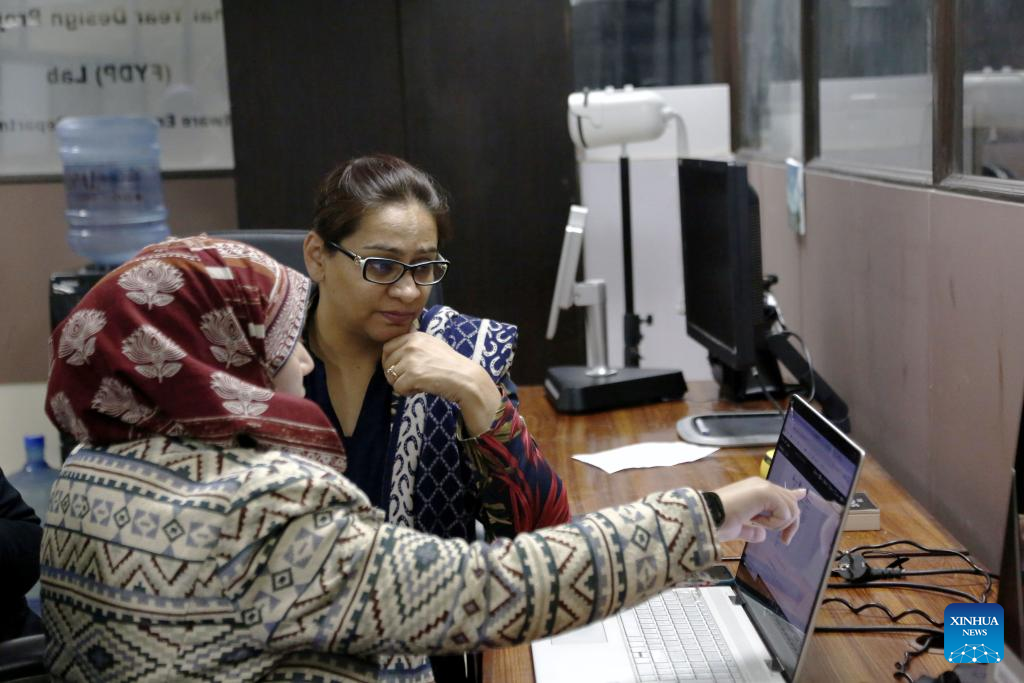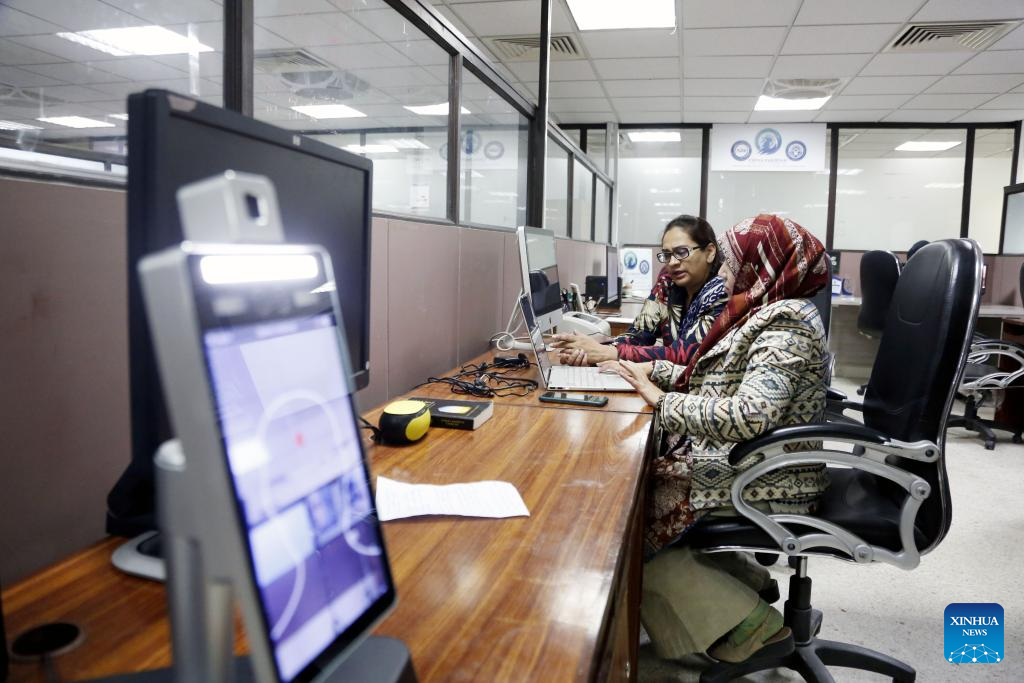Feature: Pakistani, Chinese AI researchers joining hands to make cities smarter, safer

Seemab Latif (R), an associate professor at Pakistan's National University of Sciences and Technology and director of the China-Pakistan Intelligent Systems (CPInS) lab, communicates with a student at the CPInS lab in Islamabad, Pakistan on Jan. 19, 2024. (Xinhua/Ahmad Kamal)
ISLAMABAD/GUANGZHOU, Feb. 8 (Xinhua) -- Collaboration on artificial intelligence (AI) and its applications is in full swing at the China-Pakistan Intelligent Systems (CPInS) lab at Pakistan's National University of Sciences and Technology (NUST).
"Liveness detection, gait recognition, automated number plate detection and recognition, and waste management employing artificial intelligence are among the projects we are working on," said Sahar Arshad, a PhD student at NUST and a researcher at CPInS lab.
Established in 2022, the lab is a collaborative effort between NUST and the Guangzhou Institute of Software Application Technology under the Chinese Academy of Science, with several of its projects focusing on developing innovative solutions personalized for Pakistan's urban challenges, according to Seemab Latif, an associate professor at NUST and director of CPInS lab.

Seemab Latif (L), an associate professor at Pakistan's National University of Sciences and Technology and director of the China-Pakistan Intelligent Systems (CPInS) lab, communicates with a student at the CPInS lab in Islamabad, Pakistan on Jan. 19, 2024. (Xinhua/Ahmad Kamal)
The lab is helping Pakistan develop smart cities with efficient traffic and management systems, surveillance solutions, and infrastructure monitoring, Latif said, adding that Pakistan is able to leverage upon already tried and tested technological solutions and utilize them according to its local requirements.
"We do not need to start from scratch as China has already made huge progress in technology over the years, and is sharing it with other countries including Pakistan. Many projects are being implemented in various areas of Pakistan, and we are expanding it further to make our cities safe and sound," she said.
To make headway in the field of technology, Latif said several Pakistani students are doing their post-doctoral research in China and more will follow in coming years, supporting Pakistan to cultivate a skilled workforce proficient in cutting-edge technologies.
Muhammad Turyalai Khan, a Pakistani research fellow at CPInS lab, is pursuing his post-doctoral degree in China. Witnessing the rapid technological development in China, Khan told Xinhua that he is eager to bring advanced Chinese technologies back to Pakistan, bringing more benefits to local people.
Khan said that by leveraging the strengths and expertise of both China and Pakistan, CPInS lab exemplifies the potential of international partnerships in driving innovation and addressing shared challenges.
In a conversation with Xinhua, Wu Jun, director of CPInS lab, said that the lab brings together top scientists and outstanding teams from China and Pakistan in the technology field to deeply strengthen friendly exchanges and cooperation between the two countries.
"The China-Pakistan Intelligent Systems Laboratory has developed multiple systems based on Pakistan's actual conditions to assist urban governance and benefit local people," he said.
He added that the joint projects will help more Pakistani people experience the security and convenience brought by the application of smart systems.
Photos
Related Stories
- Global forum on AI addresses ethics, sovereignty concerns
- Chinese researchers release AI governance index, with China ranking in first echelon
- Experts call for appropriate use of AI tools
- Lawmakers and political advisors brainstorm to seize opportunity for AI growth
- China Speech Valley embraces new era of artificial general intelligence
- AI-driven large models showcase great application potential
Copyright © 2024 People's Daily Online. All Rights Reserved.









